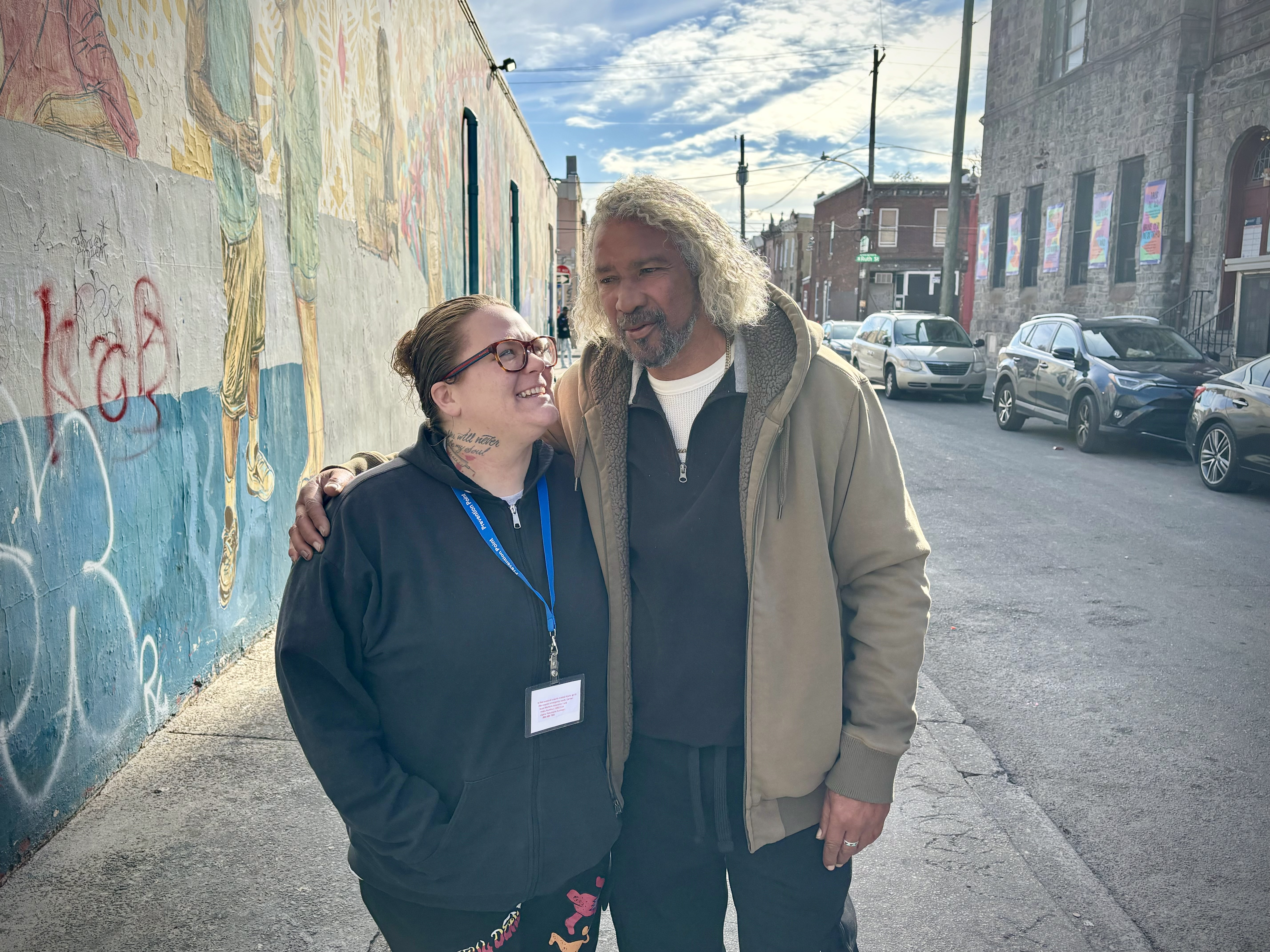
Mark was only 12 when he started drinking alcohol to excess, smoking weed, and taking pills. Not long after he began shooting heroin, mimicking what the older people around him where already doing.
“I watched them do it and I learned how to do and I liked it. I was hooked and it didn’t take long,” says Mark, now 61, a native Philadelphian. “It was the worst thing I ever did to myself.”
His relationship with heroin shaped the next 40 years of his life. By age 17, Mark had lost both of his and the guardrails personal ties can offer. He took odd jobs — washing dishes, cleaning buildings — being careful to inject himself in the legs to keep his arms scar-free. When he needed more money, he began lifting merchandise from stores, robbing businesses at gunpoint, and selling illegal substances. He was in and out of prison — including two six-year stints — and he struggled to build relationships with his partners and children. He contracted HIV and dealt with hard-to-heal wounds and other health challenges.
"I went to get and I was introduced to the beautiful people here.”
“Heroin allowed me to self-medicate so I wouldn’t feel a lot of my pains,” he says. “I didn’t think I was going to make it, as bad as I was.”
Mark first learned about Prevention Point Philadelphia (PPP) about 20 years ago, when he began utilizing its syringe services program. He became friendly with PPP outreach workers, including “my favorite person,” who would later become his case manager.
“I didn’t want the street life no more. I went to get and I was introduced to the beautiful people here,” Mark says.
His recalls how his first case worker, “my angel,” “held my hand, walked me through (the detox process), and got me on Suboxone.” When he originally classified the prescription medication as a “pacifier," his case worker balked.
“She said, ‘Don’t say that.’ It’s a life-sustaining medication.’ That made me feel better,” Mark says.

Mark says recovery is not something you complete then move on from. It’s ongoing. “I’m always an addict,” he says. “But right now, I feel all right and I’m comfortable where I’m at.”
Mark also sought treatment for his HIV at PPP’s Sana Clinic, a free primary care clinic for people living with HIV. Mark is one of 30 Sana patients who have not missed their bi-monthly injection of in over two-and-a-half years. This amazing group of people have suppressed their viral are therefore not able to pass HIV on to anyone else as long as they continue their medication.
For the first time in years, Mark is looking forward to the future. First, he wants to address the many physical problems he’s facing. Then he wants to build relationships with his daughters and the three grandchildren he barely knows.
“I want to get involved in their lives,” he says. “As for going back on this drug, never. I won’t even consider it. It’s killing people out here, even worse than when I was young. I thank God I’m not on these streets.”